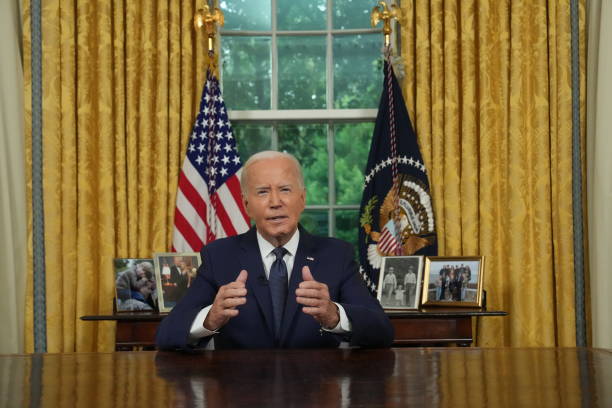No, this is not the new “Tiger King.“
Let’s start there because HBO’s new documentary series “Chimp Crazy” is being touted as a spiritual successor to the 2020 Netflix phenomenon that gripped audiences during the pandemic. “Tiger” was rife with unexpected twists, memorable characters, and genuine mysteries to unravel. It was undeniably captivating. Yet, it often left viewers feeling complicit in its sensationalism, as we watched the bitter feud between animal collector Joe Exotic and conservationist Carole Baskin escalate to a murder-for-hire plot. Were we, as spectators, guilty of indulging in this spectacle? Quite possibly.
Chimp Crazy :

“Chimp Crazy” (Sundays, 10 EDT/PDT, ★ out of four) invites us to become voyeurs once again, this time into the lives of those who keep other exotic animals—specifically chimpanzees. Directed and produced by Eric Goode, who also helmed “Tiger,” the series centers on chimp owner Tonia Haddix, another larger-than-life character. HBO’s marketing makes no secret of its ambition to replicate the success of “Tiger,” aiming to turn “Chimp” into a similar cultural sensation. However, despite its platform on a prestigious network like HBO, the show veers dangerously into the realm of exploitation.
Over the course of four episodes, “Chimp” delves into Haddix’s life, which is a profoundly tragic narrative. A longtime animal enthusiast from Florida, Haddix becomes enamored with a group of chimpanzees at a Missouri breeder’s facility, eventually uprooting her life to care for them. She forms a particularly strong bond with Tonka, a former Hollywood star who appeared in several films, including 1997’s “Buddy” alongside Alan Cumming (who is prominently featured in the series).
ALSO READ : Mike Tyson ‘ready’ for rescheduled Jake Paul fight following health scare
Haddix regards Tonka as her child, but when another employee at the facility raises concerns about the chimps’ living conditions with People for the Ethical Treatment of Animals (PETA), the organization swiftly takes legal action to have the animals removed. Thus begins a protracted legal battle between Haddix and PETA, one in which she is hopelessly outmatched.

From a broader perspective, “Chimp” follows the trend of recent true-crime documentaries that seek out ever more bizarre and extreme stories. Yet, this tale is not merely unusual; it is profoundly sorrowful. And one might question whether it needed to be told in this particular manner.
Haddix and the other individuals (primarily women) featured as pet chimpanzee owners appear to be deeply troubled, obsessed, and perhaps delusional. Experts in the series explain that chimpanzees are manageable while young, but once they reach around five years of age, they become 200-pound wild animals that are difficult, if not impossible, for untrained humans to handle. The series lingers on the cuteness of chimps in strollers performing tricks, only to reveal the inevitable horror when the animals grow up and attack. Goode and his team seem almost to relish recounting infamous chimp attacks, including the grisly 2009 incident in which a Connecticut chimpanzee named Travis mauled Charla Nash, a friend of his owner.
The narrative repeatedly circles back to Haddix, who ultimately engages in some highly questionable behavior (though not murder-for-hire) in her quest to retain custody of Tonka. The camera spares no detail of her eccentricities: her lip injections, her preference for chimps over her own children, her perjury, and the rawness of her emotions. But does she truly deserve this kind of exposure?
Haddix’s conflict with PETA has already garnered local and national attention, including a particularly damning investigation by Rolling Stone. Her actions carry significant consequences, partly because the filmmakers feel compelled to report certain things they witness to PETA. Yet once “Chimp” airs, Haddix will likely become a subject of public ridicule. The series highlights the limited regulations governing private ownership of chimpanzees, but is the best way to advocate for new laws really to mock and shame vulnerable individuals?
It’s telling—and deeply troubling—that Goode could not approach subjects like Haddix directly after “Tiger” brought a hidden subculture into the mainstream and turned its participants into punchlines. In the documentary, Goode admits he hired a “proxy director” to interact with Haddix and the other subjects. One could argue that he deceived them into baring their lives for others’ entertainment. Haddix may have been more candid on camera than others in her position, but whose camera did she believe she was speaking to?
It’s challenging to classify “Chimp” as either “good” or “bad.” It is, above all, deeply unsettling and distressing. Yes, it has a narrative drive that will keep viewers coming back for each episode. Yes, it is engrossing.
But ultimately, it’s not worth it.



One thought on “‘Tiger King’ elicited negative emotions in us. ‘Chimp Crazy’ is expected even stronger negative: review.”